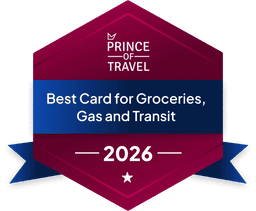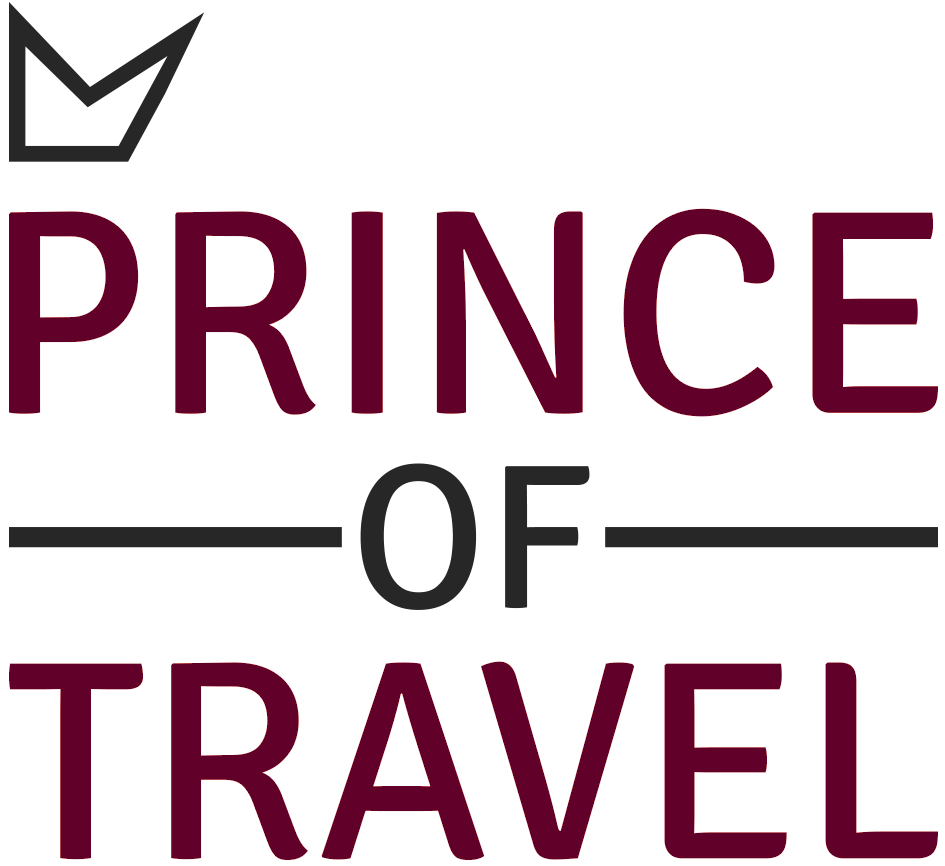How the Travel Summit Speakers Adjust to “Life” After a Big Trip

Many travellers know that although adventuring around the world is loads of fun, returning home from a trip can leave you feeling tired, and the adjustment back to “real life” can often feel hectic.
With these post-trip struggles in mind, we sought the advice of some of the most well-travelled and brightest minds from the Miles & Points world while they were with us at The Travel Summit this year.
We asked these experts for their thoughts on how to best adjust after a big trip away, and in this article, we’ve put together the best of their tips so you too can benefit from their experience to help you travel better.
How to Effectively Adjust to “Life” After a Big Trip
Earlier this year, we shared some great tips from the Prince of Travel team in a similar post on this subject.
In that article, we looked at ways to help ease the transition period between a big trip and our regular life back home, and the team’s advice fell into four categories: body, mind, soul, and logistics.
In talking to the diverse group of experts at The Travel Summit, we found that much of their advice fell under similar categories, but with some great new ideas and some interesting themes arising.
These 16 Miles & Points experts share their tips based on years of experience and loads of trial and error, so we thought it was worthwhile to share their insights to help you further improve your travel experiences.
The five key themes that the experts’ advice fell under are: buffer time, sleep, self-care, hydration, and looking forward.
Buffer Time
When it comes to travelling, most of us are limited in terms of how many days we’re able to take away from work or away from our responsibilities at home.
If you have this kind of scheduling limitation, it can be tempting to maximize the time you have away by doing things like scheduling your return flight to land the day before you have to go back to work or jumping right back into your full routine as soon as you land.

Ashley Antidormi from Travel Luxe Property Management spoke to this in her advice from The Travel Summit and shared how important it is to “take a couple days after a trip to just chill and get back into the right time zone.”
This sentiment was echoed by Julia Menez from Geobreeze Travel who reminded us that it’s incredibly beneficial to give yourself some time after a travel day before jumping into a busy schedule.
Julia also reflected on how if you travel often, you start to really understand how long it is that you’ll likely need to recover after crossing multiple time zones and returning from an adventure abroad.
Sleep
The next key theme that The Travel Summit experts spoke about in their advice was the importance of good sleep and the things you can do to keep jet lag at bay.
Similarly to Julia, Mike Dodge from Daily Drop also reflected on the increased self-awareness that comes with experience (and age), and he shared the following insightful tip regarding adjusting sleep schedules when travelling:
I’ve started to get into the habit of trying to adjust ahead of time. I never used to care that much, I used to just kind of roll with the punches. Nowadays, I’m getting a little bit older and I need to plan accordingly because a big trip will destroy me if I don’t plan accordingly.
Mike went on to say how waking up or going to bed a few hours earlier or later so that you’re pre-adjusted when you land has been really helpful for him.
Tommy Lonergan also had a travel tip related to sleep and jet lag, with his advice focusing on how best to adjust once you’ve touched down in your destination.
Tommy’s recommendation is that wherever you’re landing, you need to make it a priority to wait until it’s dark out before falling asleep. Regardless of if you’ve just had a 24-hour travel day or if you’re tired, he says that by pushing through until the end of the day, you’ll be better set up to get a full night’s rest.

Now, for many in the Miles & Points game, one of the biggest payoffs of collecting points is the ability to travel in business class and First Class often, allowing you to enjoy all the perks that come along with the premium ticket.
In our Travel Summit conversation with Non-Stop Dan he put it simply: “the game-changer is figuring out how to fly in premium cabins as affordably as possible.” By doing this, you’re able to get a good sleep on the flight and arrive at your destination well rested, allowing you to hit the ground running.
However, Dan does go on to warn us that “once you get used to flying comfortably, it’s very difficult to get used to something else,” stating that once you unlearn how to fly in economy, it can be pretty difficult to go back to it again.

For those of us who aren’t quite at the all-business-class-all-time stage of our Miles & Points journey, Ben Komenkul from Ben’s Big Deal‘s suggestion is “if you can only go business class one direction, choose the way back so that you’re rested.”
Sticking with the sleep-themed advice, Ben points out that by putting your premium cabin trip on your return flight, you get better sleep at the right time to help you avoid jet lag when you get home.
Self-Care
While many of the travel experts we spoke to at The Travel Summit focused their advice on sleep, another common theme that the tips centred around was self-care and self-awareness.
Travelling as often as these travel experts do, they’ve gotten good at listening to their internal cues and at building habits and routines that support their travel goals while also aiming to maintain a healthy body and mind.
Nora Dunn from The Professional Hobo focused her post-trip travel advice around the maintenance of routines and their benefits, saying that:
One of the things that has kept me productive and sane and grounded is a routine. When we travel, everything around us is changing all the time, and then when we come home it’s important to have that routine – even on the road it’s important to have that routine and that self-care.
Other recommended forms of self-care from the experts included booking a massage or a spa day, suggested by Ashley Peterson from Ashley Gets Around, cold plunges, suggested by both Ashley Peterson and Spencer Giles, and listening to what your body needs.

For Spencer Howard from Straight to the Points, adjusting after a big trip can involve fueling in a way that’s different from his normal routine. As he puts it, “It’s funny, I don’t really enjoy coffee, but I drink coffee when I get home from a long trip … to get me back on schedule and to stay up for as long as I need.”
Comparatively, when listening to what his body needs, Nomadic Matt goes a different direction and advocates for going to bed when you’re tired rather than pushing through.
Speaking of how he personally adjusts after a trip, Matt says, “When I come home from a trip, I don’t have anything booked that day, and I have groceries delivered. cook some food, watch some Netflix, and I’m in bed.”
Though he does aim to try to operate on the local time zone, Matt acknowledges that if you’re exhausted, it can often be best to just go to bed.
Albert Hsieh from Foxtrot Dash gave us another great piece of advice to support our long-term travel adventures when he spoke to the importance of remaining connected to our home bases and using our post-trip time at home as a form of self-care.
On this subject, Albert shared the following: “I really like spending time seeing my family and friends, spending time in my home city of San Francisco…. I get recharged by hanging out with friends …that gives me a lot of energy to get back out there.”
Although the details of what “self-care” looks like varies from expert to expert, it’s clear that it’s important to stay aware of what your body is telling you and to find ways to support your physical and mental health while travelling and when arriving back home after a trip away.
Hydration
Interestingly, another notable theme that came up across the advice provided by the experts was hydration.
We’re not sure if this speaks to generational health trends and self-awareness in general or if it’s just really solid advice, but Ashley Peterson, Mike Dodge, Julia Menez, and Chris Hau all called out staying hydrated as one of their key pieces of advice for adjusting after a big trip.
Julia acknowledges the temptation to keep drinking the free champagne on the plane and in lounges, but reiterates the importance of staying balanced, recommending having a drink of water for every alcoholic drink you enjoy.
Chris Hau takes it further. He says that he doesn’t drink any alcohol on the plane going or coming home, and he makes sure he’s consistently hydrated with added electrolytes. Chris strives to drink a litre of water for every two hours on the flight (and recommends booking an aisle seat since you’ll be going to the washroom often when following this regime).

Look Forward
Much like many of us, two of the travel experts also acknowledged that they can’t wait to get back out on the road and shared that one of their tips for adjusting after a big trip is to immediately start planning the next one.
Tara McAndrew from Travel with TMc spoke about how she looks to book the next adventure shortly after getting home, sometimes even putting next-trip plans in motion while on the return flight.
Tara really likes looking forward to the next thing, so she finds that building future itineraries fully enjoyable.
Another travel expert who highlighted the pleasures of looking forward to the next trip was Albert Hsieh. He said that, “ way I like to recover is by booking another trip; call me an addict, but somehow that is equally enjoyable and relaxing to know that I have something exciting to look forward to.”
Conclusion
Having the ability to travel and explore is an amazing opportunity and privilege, and it allows us to seek new adventures, learn about new cultures, and share some of ourselves wherever we go.
Despite all the good that comes from travel, the logistics of the journey and the return home to “real life” can sometimes make for a difficult adjustment.
We hope that the advice provided by the above travel experts, based on their years of experience, will help you better adjust after a big trip and, ultimately, get even more out of your travels and your Miles & Points journey.
First-year value
$336
Monthly fee: $15.99
• Earn 1,250 points per month upon spending $750 per month for 12 months
Earning rates
Key perks
- Transfer to airline and hotel partners

Monthly fee: $15.99
• Earn 1,250 points per month upon spending $750 per month for 12 months
Earning rates
Key perks
- Transfer to airline and hotel partners





